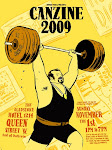Friday, February 29, 2008
Plundering Problematic Privacy Pet-Peeves
For example, several employees from a former job of mine are "friends" on my Facebook account. This means they can see how shitfaced I got at the club I attended last weekend. They can also read all the notes I've written, and all the raunchy inside jokes in my profile and wall where all of my friends either verbally abuse me or say otherwise strange things. Is this a good thing? Probably not. I'm lucky that my former co-workers and supervisors were fairly relaxed, easy-going people who don't take these things seriously. But what if, someday in the future a particularly traditionally rigid boss looks me up on facebook, decides to add me as a "friend" and peruses my social history. This might not look so good after I've handed in my carefully crafted and respectable resume.
In a workplace environment, leaking confidential information privy to the business can get your fired, or worse. The ramifications of betraying a corporations trust can be harsh, and that is where the internet is providing more opportunities to commit fraud.
If you want every single acquaintance, well wisher, pal, chum, friend-of-a-friend, childhood enemy, ex-lover, relative, fellow student, or co-worker to know that you broke up with your significant other on Friday, at 3:15 a.m. and that every picture in your albums of you and that person together are now absent, then get a Facebook account. That is the kind of privacy that social networks can afford you.
The lack of privacy on the web can also work to an individual’s advantage, by providing outlets of information that otherwise is not available to the general public. When crimes have been committed and the names of particular suspects have not been released by police officials, then journalists and everyday people can have access to their identities through those who post the information on the web.
When the votes in the American election have been tallied in one state, and have not yet been released on television, guess where that information can end up? It could leak through people onto the web, giving people up- to-date information immediately. It can also assure the reverse. For example, during the 2004 elections in the United States an exit poll was prematurely released that indicated that John Kerry overwhelmingly won the election. This led the American public to believe that the wrong man had become their president. In cases such as this, erroneous information can lead to much larger societal impacts than the public knowledge of a break-up.
Citizens can either misuse the information available to them on the internet, or they can utilize it responsibly. The same line of thought can be applied to those who post information on the web. People seem to think that what they write about themselves on the internet is irrelevant to real life and will never arise in realistic situations. For instance, the mentality that the thoughts that we write in a blog or social network are like words written in the sand, they do not make any kind of impact. This is a naïve and irresponsible way of looking at internet content. People should treat internet privacy with the same amount of intelligence that they would treat a conversation with a stranger on the street. You wouldn’t give him pictures of your friends and family, your cell phone number and your apartment number and waltz off. When it comes to internet privacy people have to exercise caution and common sense.
Monday, February 4, 2008
A Queer Canadian History Lesson
In order to fully appreciate what gay rights have been gained in Canada we have to go back, way back, to 1965, when admitting you were gay landed you in prison. It was Pierre Trudeau who passed the amandment that decriminalized homosexuality in Canada.
In 1978 a new Immigration Act was finally drawn up which removed homosexuals from those who cannot be admitted to the country. Definitely a big improvement.
The bath house raids of 1981 in Toronto was the largest mass arrest since the War Measures Act was invoked during the October Crisis. 300 men went to prison, and 3,000 protested in the streets that night. Just shows you, don't piss gay men off. Unless you want to deal with the consequences, and there will be big ones, believe me.
The year of my birth, 1988, was the year that the first MP, Svend Robinson, pub
 licly came out of the closet. In B.C. he was elected for the 8th time in 2000. Go Svend! Its always empowering when someone in the public sphere makes their sexual orientation known, and thereby gives power to all those who feel they can't express themselves.
licly came out of the closet. In B.C. he was elected for the 8th time in 2000. Go Svend! Its always empowering when someone in the public sphere makes their sexual orientation known, and thereby gives power to all those who feel they can't express themselves.Ontario became the first province to make it legal for same-sex couples to adopt in 1995. A judge ruled that the Child and Family Services Act infringed on the Charter of Rights and Freedoms, and joint applications became available to same-sex partners! Now, whoever argues that gay parents cannot raise a child in the same kind of loving, positive environment that straight parents can are fucking crazy and have no basis for that argument. Same-sex parents are just people, and like any other parent they have the power to nurture or harm their child, but it has nothing to do with sexual orientation. Just keep that out of it, and the arguments fall flat.
In 2002 Marc Hall won the right to bring his boyfriend to prom at a catholic highschool. The Durham Catholic District schoolboard felt that allowing them to attend would reflect that the church accepts his "homosexual lifestyle." Oh go to hell Catholic schoolboard! We're not all virgins, saints and bible-followers. This is the real world.
The first same-sex marriage in Ontario took place on June 10, 2003, between Michael Leshner and Michael Stark, but it wasn't legalized in Canada until July 20, 2005. We have Jean Chretien and Paul Martin to thank for their contributions in bringing about a monumental change.
Then we have Steven Harper and other like-minded Conservatives to thank for trying to stall the vote for as long as they could, and reopening the issue in 2006 with a motion to reinstate the "traditional" definition of marriage in Canada. Too bad for you Harper, but Canadians know what they want. Hopefully it isn't you any longer.
There are still gains to be made, but there is no denying Canada has made many.
Here is a link for a nifty, slightly more educational timeline than mine, which details specific gains in same-sex rights from the good folks at CBC News.
http://www.cbc.ca/news/background/samesexrights/timeline_canada.html
Friday, February 1, 2008
Citizen Journalism..yay or nay?
Can't we make love, instead of war when it comes to the feuding journalists and citizens? Is this a Romeo and Julet story where two star crossed lovers are separated by feuding families, or is it just ludicrous?
The truth of the matter is, everyone has a right to express their opinion and bring issues to the table. Before the inernet became a megaphone for the masses there weren't many outlets for everyday people to voice their concerns about health care, women's rights, the government, foreign relations, and more essential issues like beauty tips, 15 ways to keep your man satisfied in bed, and Britney Spears' latest mental breakdown.
It all boils down to being an observant and conscious consumer of information, and realizing that some proffesional news is biased, controlled by a massive commercial enterprise, and tends to reproduce race, sexuality, gender and age stereotypes through the types of stories they run, and those that they exclude. News can never be perfect, becuase there will always be important issues that are never addressed, and those with the financial power to run newspapers and newscasts can have biased opinions expressed in their content. This is more blaringly obvious in media like CNN and Fox News, which, compared to CBC's The National, resembles the equivalent of a freakshow tabloid.
 Consumers of internet generated news/blogs should also be aware that the accuracy of information isn't always top notch. Think Wikipedia....or say, this blog. If you’re going to go out there and surf for information do your homework and ensure that you’re not being taken for a ride. Especially if its blindfolded, in the truck of a beat up van that smells like cats and marijuana.
Consumers of internet generated news/blogs should also be aware that the accuracy of information isn't always top notch. Think Wikipedia....or say, this blog. If you’re going to go out there and surf for information do your homework and ensure that you’re not being taken for a ride. Especially if its blindfolded, in the truck of a beat up van that smells like cats and marijuana.
Still, everyone wants to be heard and some people address issues through their blogs that aren't covered by conventional news. A lot of activism has grown from blogging/ effective internet sites, and any course of positive action is worth it, no matter how few actually take action. So there are pros and cons to both side of the coin. But even though they may not derserve the noble title of journalist, they do deserve some respect and some credit.
In the words of the great Amanda Marshall, "Everybody's got a story."
























